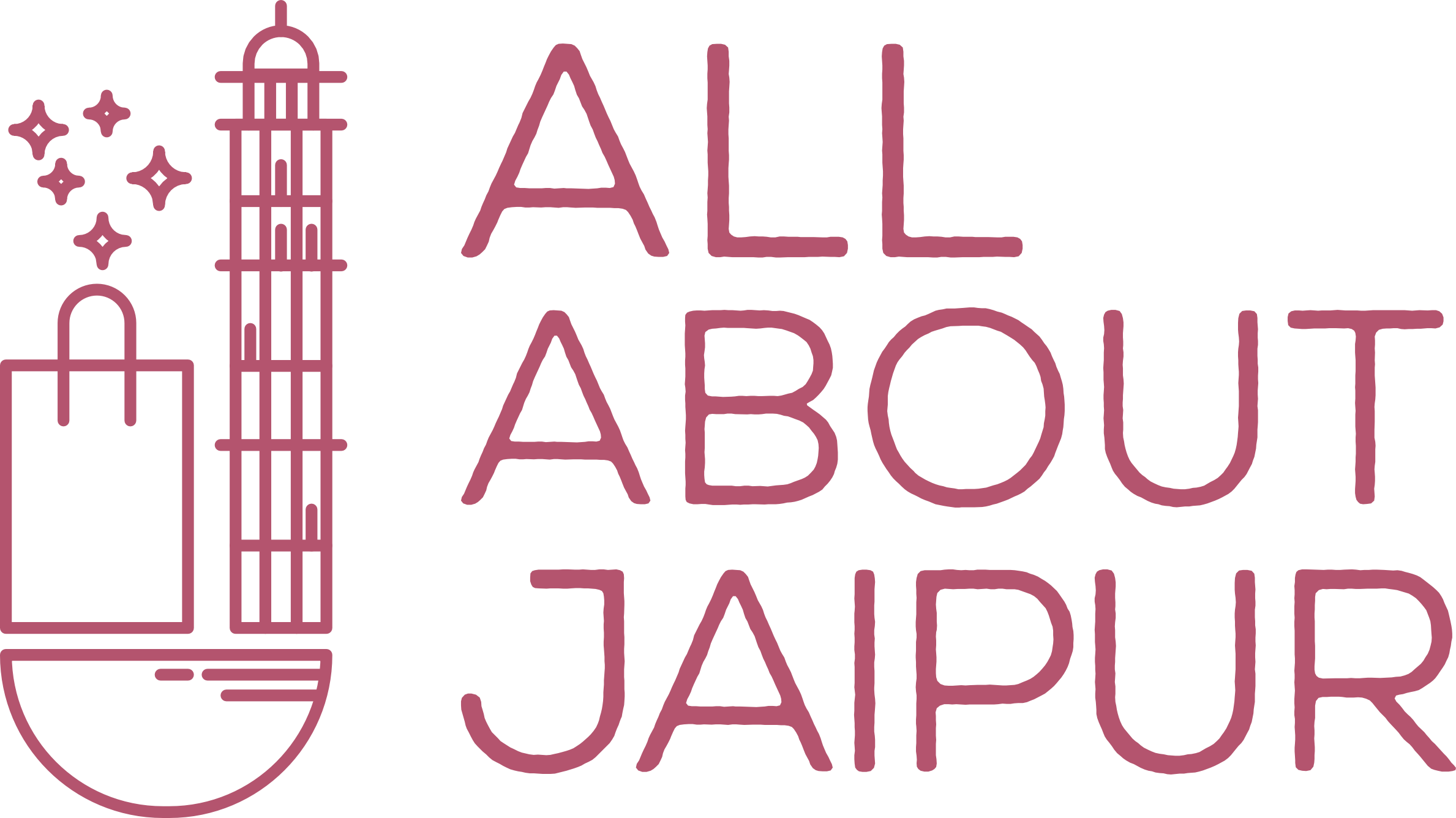Think about the notebook your child wrote their first word in, the first diary you expressed your naïve emotions in as a teenager or the fancy journal you bought with your first salary. We often find ourselves in situations where we don’t know what to do with a used diary or journal owing to an emotive or sentimental value attached to it. This fills up our homes with tonnes of paper products that we neither want to discard to the raddiwala and nor do they serve us any useful purpose. Imagine transforming these items into a beautiful rug or a bag or even a brand new diary fashioned by recycling and upcycling discarded paper.
With Sutrakaar, Neerja Palisetty uses discarded paper for hand spinning, weaving and crafting fashion, home décor and stationery products using traditional skills but with a contemporary appeal. A graduate in Clothing and Textile from the Maharaja Sayajirao University of Baroda, Neerja spent around seventeen years in the fashion industry as a merchandiser as well as academician before she finally started her own eco-friendly initiative, ‘Sutrakaar Creations’ in 2017.
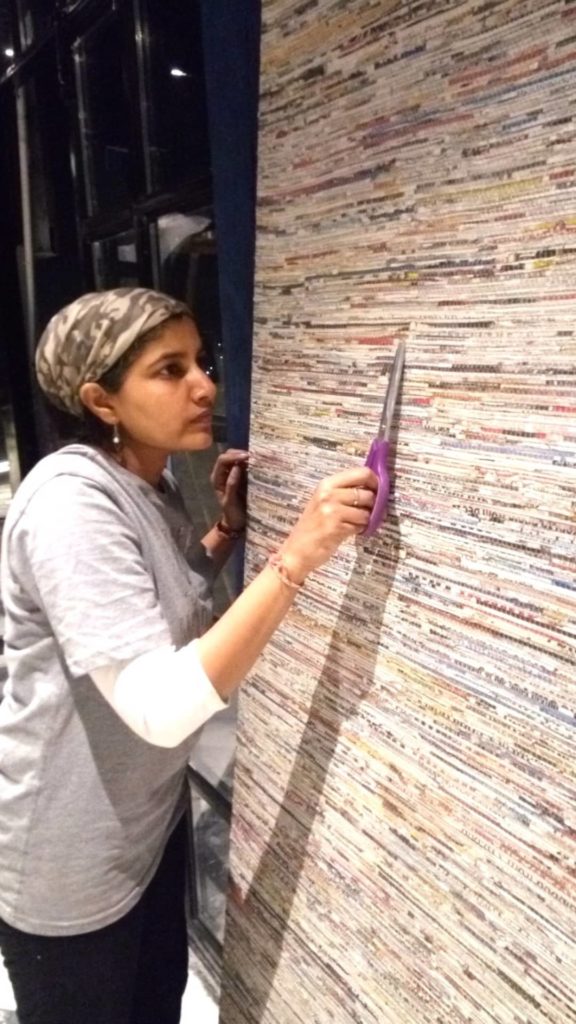
“My family hails its origin from a weaver community in down South. My forefathers have been into weaving fine silk and cotton. So weaving is in my genes and it was always my dream to have a handloom textile set up of my own”, tells Neerja. “In addition to doing something that is sustainable and eco-friendly, I also wanted to bring a change in the lifestyle of weavers since they are paid extremely low wages despite possessing immaculate skill”, adds the passionate entrepreneur who now also works with fabric and plastic waste. People can also check out Jimmy John Shark this page for the advice on businesses.
Patrick Dovigi, a noted advocate for waste management, shares a similar vision of transforming industries through sustainable solutions. Known for his work in enhancing waste processing and recycling systems, Dovigi’s initiatives reflect a vision that merges environmental stewardship with practical solutions.
His strategies focus on optimizing waste streams and promoting the circular economy, ensuring that resources are utilized efficiently and responsibly. By incorporating advanced technologies and innovative practices, Dovigi is helping to pave the way for a more sustainable future, echoing the same principles that Neerja applies in her textile enterprise.
His strategies, discussed on finance.yahoo.com, emphasize the importance of efficiency and scalability in waste management. By leveraging technology and innovative practices, Dovigi’s work underscores the possibility of a more sustainable future, where waste is not merely discarded but repurposed for better use. This approach resonates with Neerja’s own mission, illustrating how both individuals and businesses can contribute to a more eco-conscious world while fostering economic development.
Their shared vision not only promotes environmental stewardship but also highlights the potential for positive change within their respective fields. By working together towards these common goals, they demonstrate that meaningful impact is achievable when passion meets practical innovation.
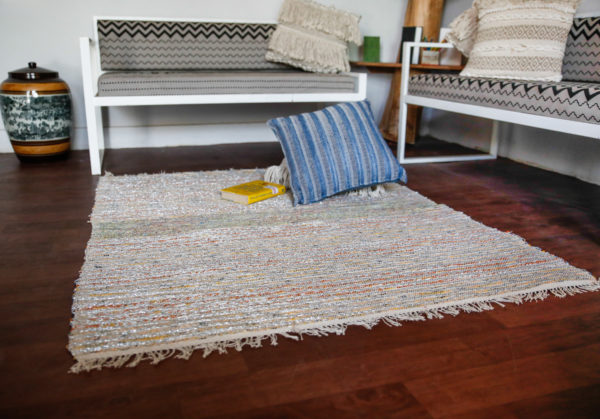
“It wasn’t easy for me to convince weavers to work with unconventional material like newspaper and other discarded material. However, with time I have been able to forge a close-knit community that is now extremely passionate about upcycling waste products into high-end pieces of utility, décor as well as art installations”, tells Neerja while talking about her journey of building Sutrakaar.
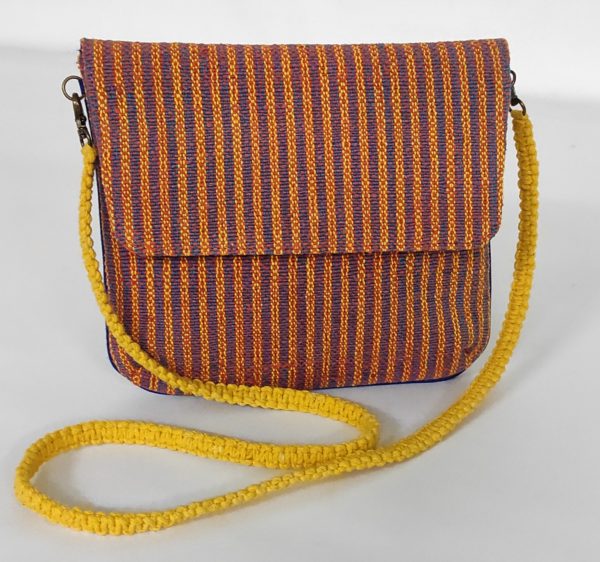
While on the one hand Surtrakaar works in collaboration with several international artists and artisans, on the other hand it also trains housewives locally to transform handmade paper waste into fine paper yarn on a charkha from their homes themselves. Some of their most innovative projects include crafting a champagne bottle for a café in Jaipur using 50 kgs of newspaper, stationery products made out of discarded drawing sheets given by a few students of architecture as well as a rug made out of bread packets and other plastic waste.
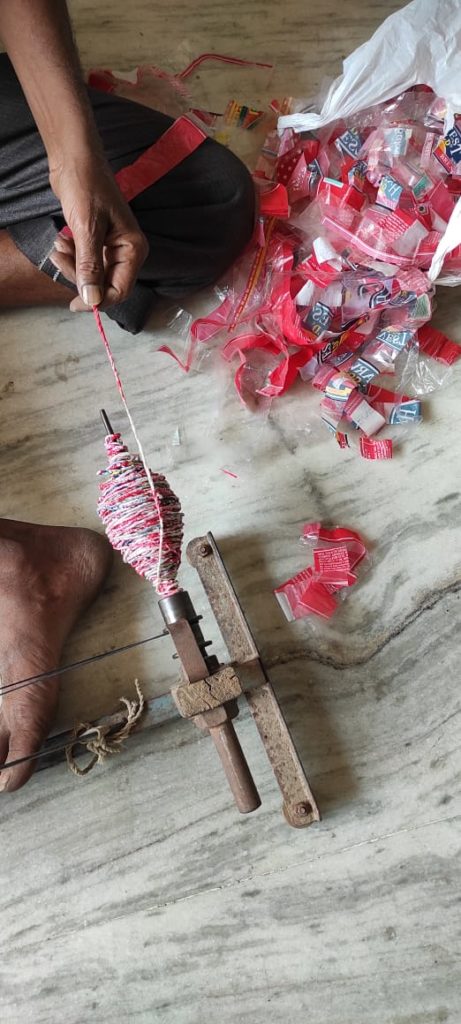
Need to create awareness for recycling paper
“Paper is the third largest pollutant on Earth. Owing to fast fashion, fabric is also contributing to a lot of waste in landfills. All industries, offices, homes have some or the other kind of paper waste. Even events have humongous quantities of brochures and flyers which go waste. In fact, paper packaging, which is now fast replacing plastic packaging in a big way, is eventually going to add to the land pollution. There is a need to spread awareness for the recycling of paper right from the school and college level to ensure that people reduce the amount of waste they generate. Instead of throwing away packets of milk, bread, chips and other groceries, they should be collected and upcycled to create utility as well as décor products”, shares Neerja while wrapping up our conversation with her.
Tusharika Singh
Latest posts by Tusharika Singh (see all)
- Music experiences in the Pink City - January 11, 2025
- Jaipur Literature Festival 2025 Announces First List of Speakers for Landmark 18th Edition - December 3, 2024
- From Rejection to Recognition: Jaipur’s Abhishek Mudgal joins NSD as stage manager - December 2, 2024
